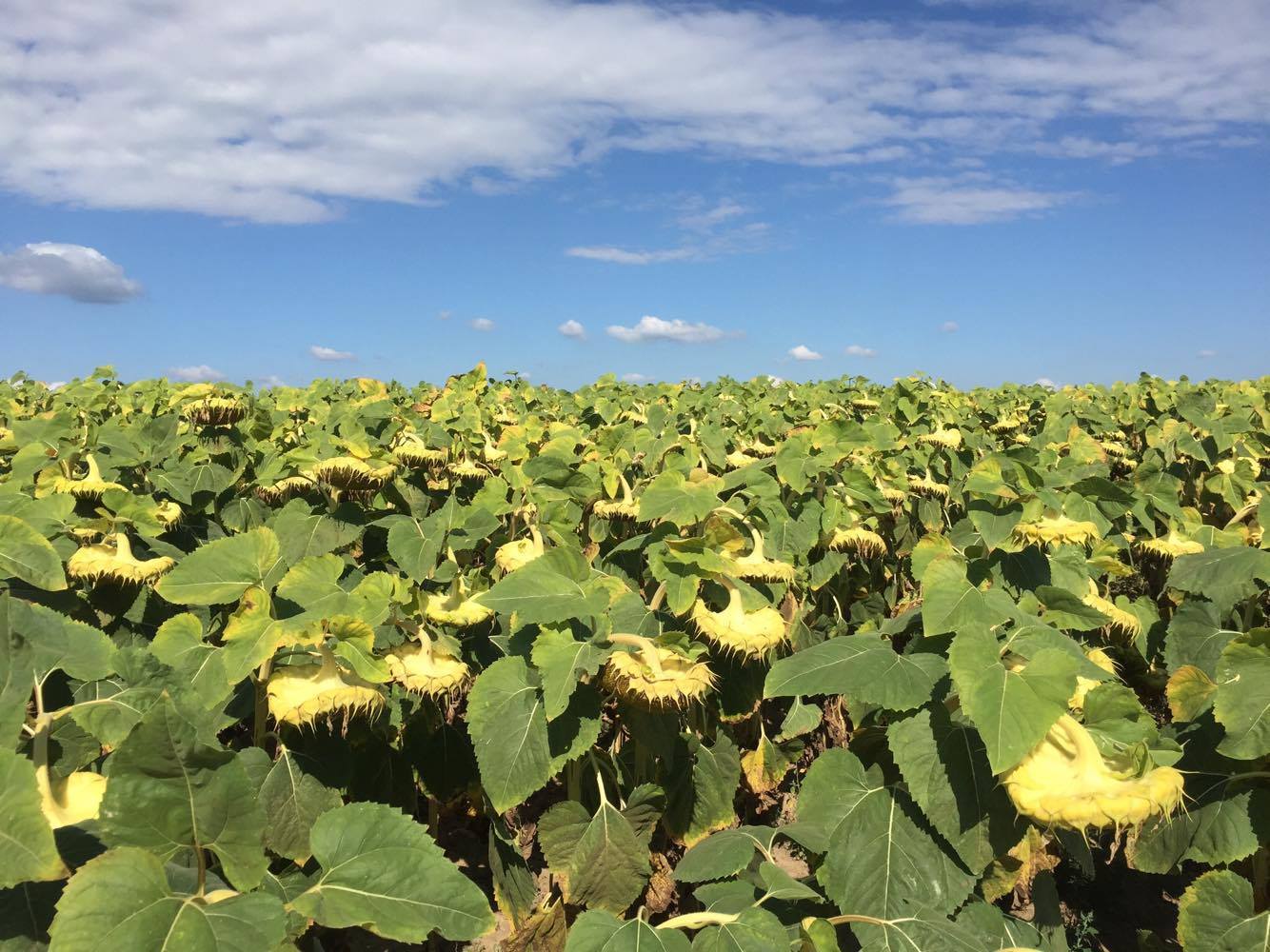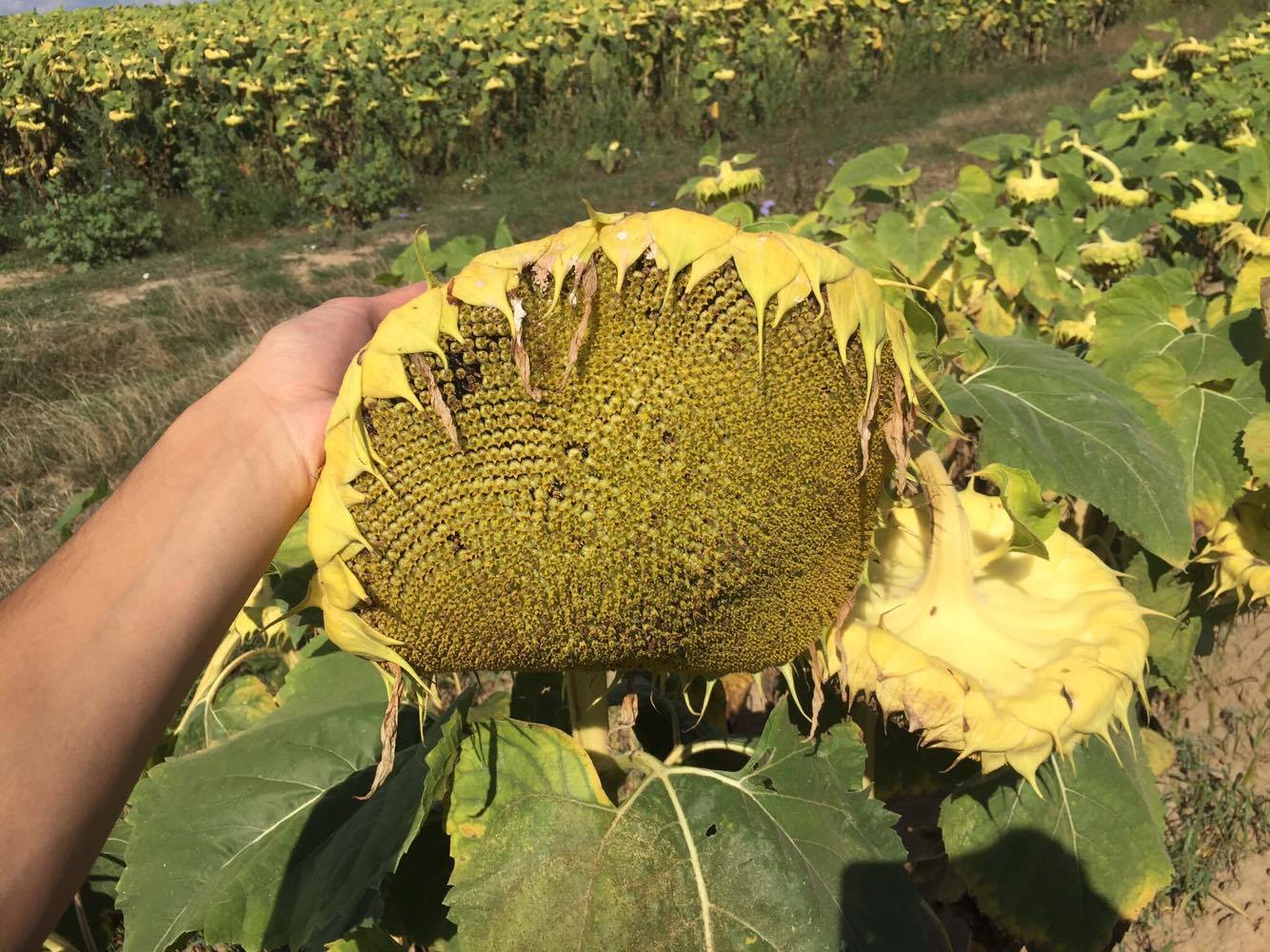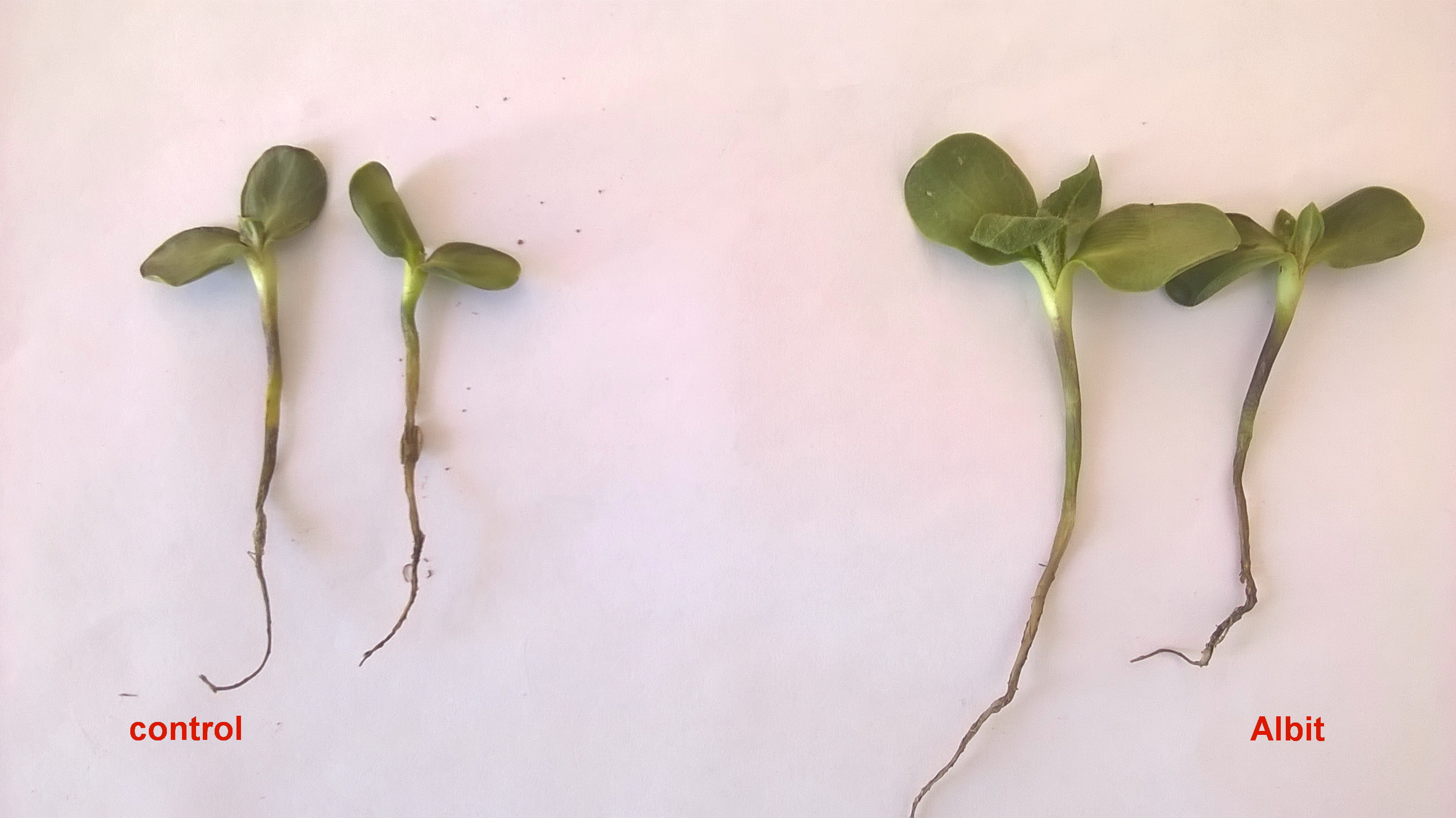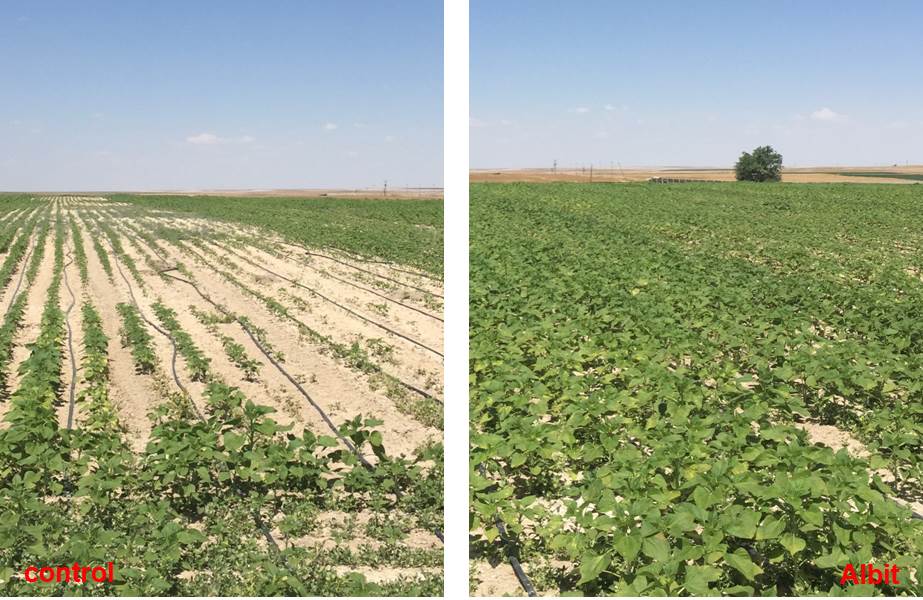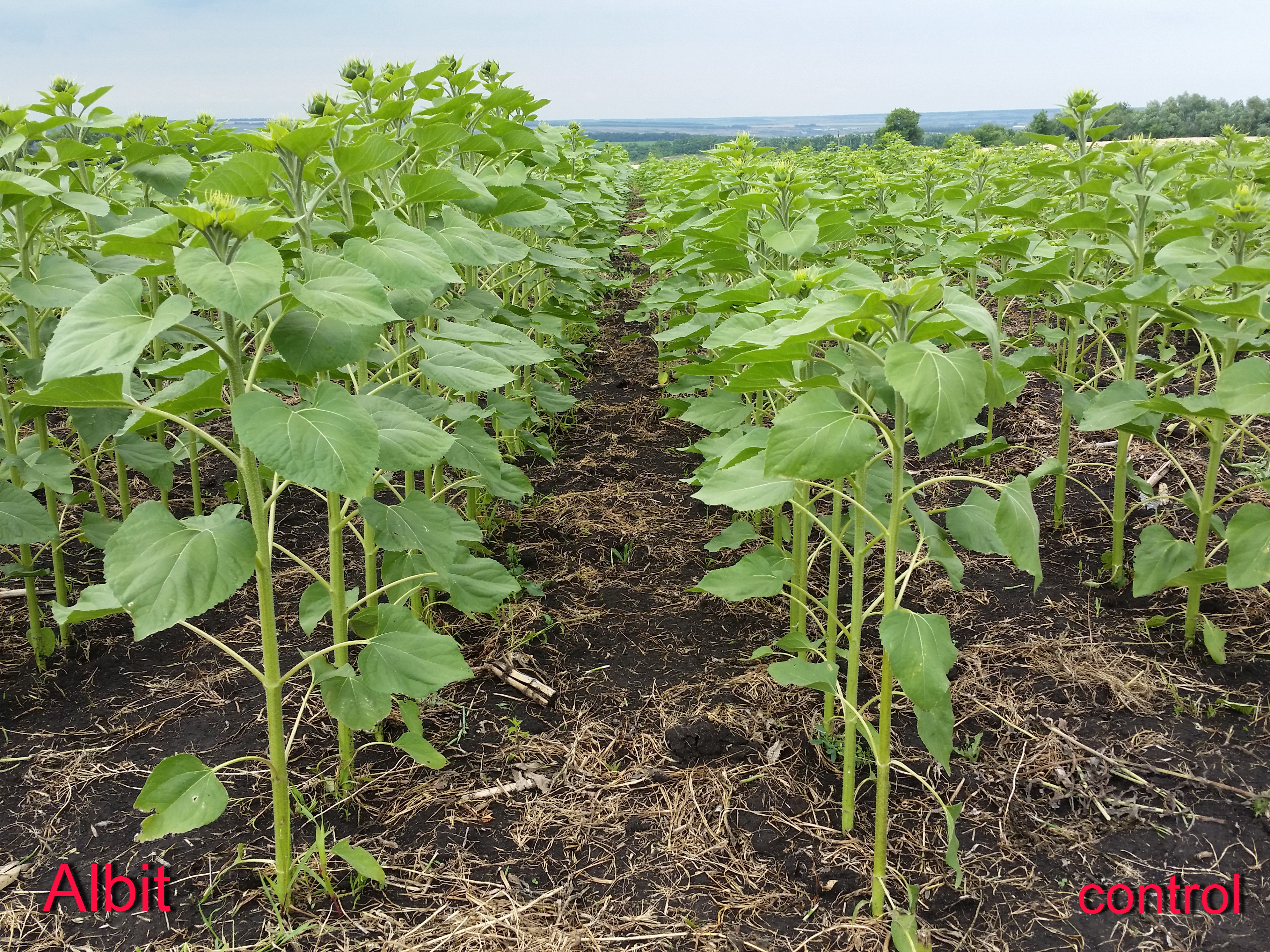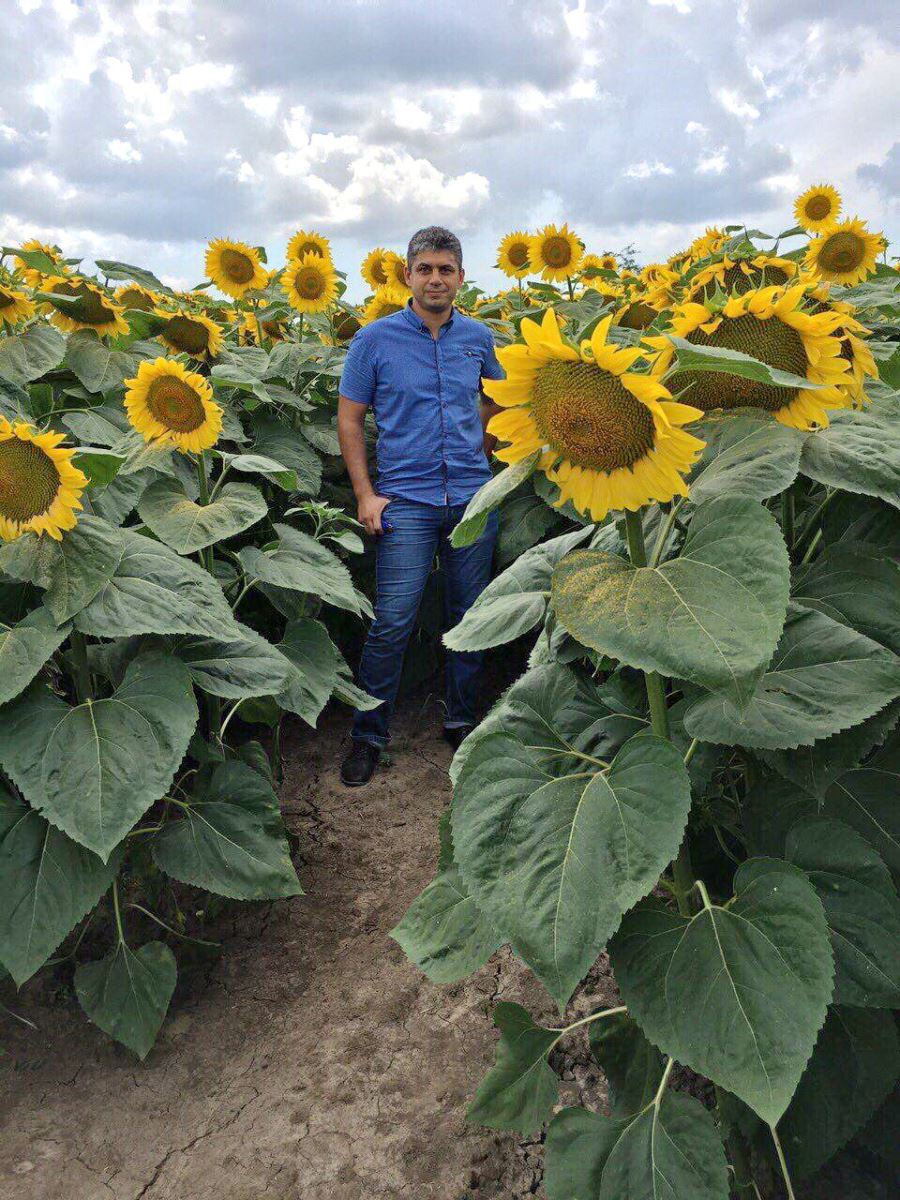|
|
Materials used in this chapter were published in book Biostimulant Albit for increasing yields and protection of agricultures against diseases, A.K. Zlotnikov, Ed. Prof. À. Melkumova. All-Russia Institute of Plant Protection, Russia, 2006.
Sensitivity of Sunflower to Albit has been examined in more than 14 field trials in more 5 oblasts of Russia (Stavropol and Krasnodar krajs, Voronezh, Saratov and Lipetsk oblasts and other institutes and farms). Experiments was carried out in 1999-2004 on Sunflower varieties Gibrid XF-475, Saratovskij-82, Sanmarin-361, Skorospelyj-87, Stepnoj-81 and Master by All-Russia Institute of Plant Protection (2002); Agricultural Scientific Institute of South-East, Saratov regional plant protection station, ZAO Rus of Stavropol Kraj, Chapaev pedigree cattle farm, Agricultural company Kushchevskoe of Krasnodar kraj and Agricultural company Grachjevskij of Lipetsk oblast. The product is also being widely used in Rostov, Volgograd, Lipetsk and Tambov oblasts and in other oblasts.
Albit increases germination, activates growth and development, increases resistance to unfavorable climate conditions, increases yield, improves yield quality. Our product is effective against disease infestation. Also, Albit accelerates blossoming and maturation of seeds by 6–7 days and
In Russia, Albit officially registered as fungicide against watery soft rot and grey mould rot. Its biological efficiency against dry rot, watery soft rot and grey mould rot is 62–71, 14–100 and 26–100%, respectively (67, 55.8 and 66.3% on average). Fungicidal activity of Albit was detected under disease prevalence of 21–30% and disease development of 2–10%; in this experimental conditions efficiency of Albit was not worst than that of high-efficient chemical fungicides based on a.i. iprodion and benomyl. At low infestation level, BE of Albit against watery soft rot and grey mould rot might reach 100%. According to recently obtained data of All-Russia Institute of Plant Protection (2005), Albit treatment of sunflower seeds (var. Rodnik) in combination with twice repeated Albit foliar spraying demonstrated BE against Phomopsis stem canker of 70.3–74.5%, that was just 11% lower than efficiency of specialized system of chemical defense (based on a.i. Fludioxonyl + fenpropimorph - double spraying). Application recommendations: Maximal efficiency of Albit application can be reached via combination of presowing seed treatment and foliar sprayings (1-2 fold): first – at the stages of 4-7 real leaves (BBCH 14-17) and second – at the stage of blossoming (BBCH 50-65). Recommended application rates are 200 mL/t of seeds (application rate of working solution 50 L/t), 40 mL/ha (application rate of working solution 300 L/ha). In most cases, only one foliar spraying will be enough instead of 2 recommended ones (the first spraying is preferable). The higher rates should be used at high infestation of seeds and combined using with chemical protectants. Full complex treatment of 1 hectare of sunflower field (presowing treatment + 2 foliar sprayings) takes averagely 82 mL of Albit. 1 litre of Albit can be used for treatment of 12.2 hectares of sunflower. Presowing treatment has the highest economical significance. It provides powerful stimulation in early stages of development that is prerequisite of accelerated plant growth and high yield. Seed treatment also immunizes against dry rot, watery soft rot, grey mould rot and Phomopsis stem canker. According to reports of farmers of Krasnodar kraj, sunflower seed treatment with Albit is able to reliably protect plants from all possible diseases, but sometimes, in case of high infectious environment, it is recommended to combine Albit with halved doses of chemical seed treatment agent (for example, pesticides, based on a.i. Tiram) (Table 13). Comparing to pure chemical protectants, using of mixes is more efficient economically while biological efficiency is the same. Inclusion of Albit in methods of insecticide seed treatment (based on a.i bifenthrin) against soil pests (for example, wireworms), is also effective. And, finally, it is possible to use complex treatment with Albit + insecticide + fungicide +adjuvant. Such treatment provides both stimulation and defense against insect pests and diseases. Sunflower seeds can be treated with standard equipment (treatment devices PS-10A, PSS-5, etc.); application rate in this case is 50L of Albit working solution/tonne of seeds; sowing should be performed within 24 hours after treatment. However, maximal effectiveness can be reached with another method: seeds should be distributed over a polyethylene film or on an asphalted ground (previously moistened with water), then carefully moistened with the working solution (with hand-held syringe). In this case, slightly increased amount of working solution (50 L/t) should be used. Leave the treated seeds on the ground in a shadow place, in a layer less then 20 cm, and keep 2-3 days before sowing. With this method Albit penetrates shell and acts at its full potential. To increase Albit growth stimulating effect by 30-40%, it is reasonable to use also Albit foliar sprayings. They accelerate blossoming and seed ripening, help to form more productive head, increase weight of seeds and oil output, defend against head form of Phomopsis stem canker, watery soft rot and grey mould rot. Albit application on sunflower increased oil content by 9% (oil content in control 43%). The trial was conducted in drought conditions of Turkey (Edirne region, 2016). Also, trial on sunflower was conducted in Voronezh Oblast in 2002 and 2007. Climatic conditions of these years were favorable for sunflower growth. Oil yield per hectare increased due to increase the total crop yield by 10% vs. standard and by 22.5% vs. control (All-Russian Research Institute for Plant Protection). Therefore, application of Albit on sunflower in drought conditions promotes to increase of oil content. The first foliar spraying with Albit (at the stages of 4-7 real leaves) could be performed together with chemical (herbicidal) weeding. For example, in Voronezh oblast (2004-2005), addition of Albit to herbicide based on a.i. clethodim increased yield by 10% due to relieving of herbicidal stress. Foliar sprays with chemical fungicides can be combined with Albit too; dose of fungicide in this case can be decreased. The second foliar spraying also provides plant resistance to watery soft rot and grey mould rot, stimulates synchronous and productive seed setting in head, increases seed weight and oil content. Second treatment just improves effect of the first treatment and can not be used independently. According to all data presented before, the maximally efficient Albit treatments for sunflower is seed treatment and foliar sprayings in beginning of development. On the other hand, as was shown in experiments in Rostov oblast, humates have pronounced growth stimulating effect being used in second half of sunflower’s development. Thus, for obtaining of maximal effect one can recommend the following combination of procedures: Albit presowing seed treatment (possibly + foliar spraying at the stages of 4-7 leaves) + treatment with humates in second half of development. Albit-dependent acceleration of passing through development stages have a great significance, because terms of ripening often are critical for obtaining of good yield (Figs. 2-5). For example, farmers of Tambov oblast (2003) (according to the data of Tambov plant protection station) thanks to Albit managed to harvest sunflower before autumn rains, whereas the neighbor farmers was late. In agricultural company Kushchevskoe of Krasnodar kraj, the physiological ripeness of seeds of Albit-treated fields come 1 week earlier than that in control. As practice shows, in the northern regions of the Volgograd, Saratov and Samara Regions, the early-maturing sunflower hybrids often express delayed maturing, thus postponing the harvest to the mid-season, or even to the late-season. Further up north, the period of plant development extends with the consequent further delay in the maturing of the crop. However, a unique property of Albit can solve this problem. Albit accelerates the ripening process and allows to harvest fully formed yield in a shorter time.
Fig. 2. Influence of seed treatment with Albit on acceleration of growth and development of sunflower seedlings in field conditions (Bacau, Romania, 2016)
Fig. 3. Influence of Albit on acceleration of development of sunflower in dry conditions. Right – treatment with Albit (Konya region, Turkey, 2016)
Fig. 4. After Albit treatment, accelerated growth and maturation of sunflower are observed (Voronezh oblast, 2007)
Fig. 5. Farmer in the sunflower field. Sunflower was grown with Albit application (Plovdiv Province, Bulgaria, 2018)
Economical effectiveness: In case of sunflower, Albit provides on average 1300-3500 roubles of net profit from 1 hectare (based on all trials conducted in Russia since 1997 to 2015). 1 litre of Albit provides average yield increase of 41 centners.
In the following Table, you can see all reports on performance of Albit on sunflower, available in English. For all available reports, please see corresponding table on Russian webpage.
|
|
||||||||||||||||||||||||||||||||||||||||||||||||||||||||||||||
Terms and Conditions
|
|
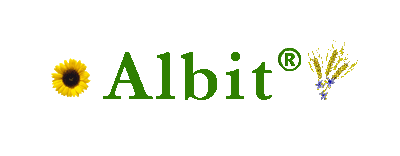
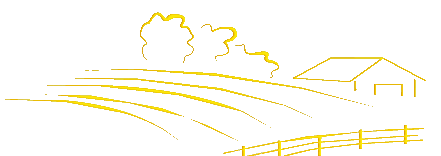
 Sunflower,
along with sugar beet, is one of the most markedly reacting to Albit cultures.
Depending on conditions, yield increase of sunflower under
Albit influence might vary from 0.11 to 0.55 t/ha (0.34 t/ha
or 27.3 % averagely) over control. Average yield increase in Voronezh oblast
and Krasnodar kraj is 0.45 t/ha, in Saratov oblast is 0.28 t/ha,
in Stavropol kraj is 0.2 t/ha. When using Albit in Romania (farm
“AGRIBAC” SRL, Bacau region, 2016), in spite of severe drought, yield
of sunflower was 3.8 t/ha, while average five-year yield of sunflower
is 1.81 t/ha (Fig. 1).
Sunflower,
along with sugar beet, is one of the most markedly reacting to Albit cultures.
Depending on conditions, yield increase of sunflower under
Albit influence might vary from 0.11 to 0.55 t/ha (0.34 t/ha
or 27.3 % averagely) over control. Average yield increase in Voronezh oblast
and Krasnodar kraj is 0.45 t/ha, in Saratov oblast is 0.28 t/ha,
in Stavropol kraj is 0.2 t/ha. When using Albit in Romania (farm
“AGRIBAC” SRL, Bacau region, 2016), in spite of severe drought, yield
of sunflower was 3.8 t/ha, while average five-year yield of sunflower
is 1.81 t/ha (Fig. 1).